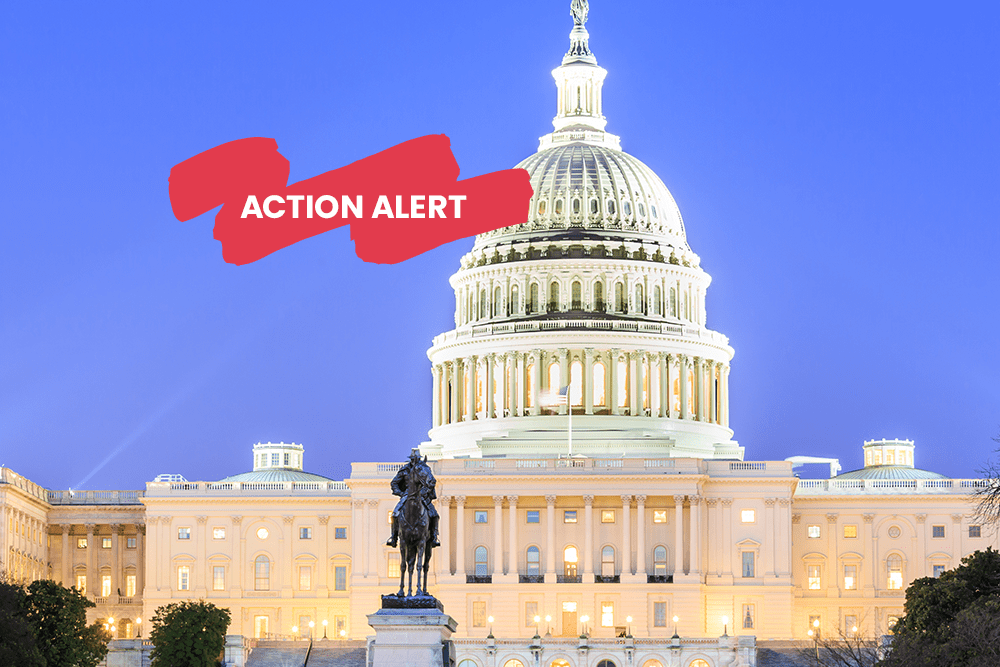Advocacy
Food Allergies in Child Care
Food allergies affect about one in 13 children in the United States – a number that has been growing. Anaphylaxis is a severe allergic reaction that can be life-threatening if not treated quickly and properly. Because there is no cure for food allergies, awareness and preparedness are key for protecting health and saving lives, especially in a child care setting.
AAFA supports the adoption of Elijah’s Law across the country. In 2022, AAFA partnered with the Elijah-Alavi Foundation (EAF) to publish Child Care Policies for Food Allergy: Elijah’s Law Report for U.S. States and Territories. The report includes two parts: a review of state-level policies protecting children with food allergies in child care programs, and a toolkit for advocates to support Elijah’s Law in new states.
What Is Elijah’s Law?
On November 3, 2017, 3-year-old Elijah Silvera died after having a severe allergic reaction (anaphylaxis) at his preschool facility. Even though the preschool had documentation of Elijah’s life-threatening milk allergy, asthma, and other allergies, the facility fed Elijah a grilled cheese sandwich. The facility then failed to follow emergency protocols to treat anaphylaxis.
Elijah’s Law is a bill that ensures child care facilities take concrete steps to manage food allergies for the children in their care. Such steps include developing emergency protocols, strategies for discussing food allergies with children, and plans for preventing exposure to food allergy triggers.
On September 12, 2019, New York was the first state to sign Elijah’s Law into law. It requires New York child care programs to follow guidelines for preventing and responding to severe food allergy reactions. As of February 2022, the law has also been passed in Illinois, and introduced in California, Pennsylvania, and Virginia.
About the Report
The purpose of Child Care Policies for Food Allergy: Elijah’s Law Report for U.S. States and Territories is to support the adoption of Elijah’s Law in more states. It is our hope that with this report, advocates, legislators (lawmakers), and other leaders will better understand state-level gaps in child care protections and take necessary measures to advocate for Elijah’s Law across the country.
The full report includes:
- State-by-state review of food allergy policies for child care settings
- Recommendations to improve child care policies for food allergy
- Tips for contacting your state legislators
- Tips for communicating with legislators and their staff
- Sample letter to your state legislator
- Elijah’s Law fact sheet
- Sample social media posts
- Sample bill language for Elijah’s Law
Download “Child Care Policies for Food Allergy: Elijah’s Law Report for U.S. States and Territories”
Key Policy Standards for Child Care Settings
AAFA and EAF identified nine key standards that protect children with food allergy in the child care setting. “Child Care Policies for Food Allergy: Elijah’s Law Report for U.S. States and Territories” includes a state-by-state review to compare those standards with child care regulations in every state and U.S. territory. This assessment aims to help advocates and lawmakers better understand what protections already exist in their states and where additional protections are needed.
The nine standards are:
- State requires up-to-date health records to include known allergies.
- State requires a food allergy care plan for children with food allergies.
- State requires child care personnel to receive training for the prevention, recognition, and treatment of allergic reactions to food.
- State requires child care personnel to receive training on the administration of epinephrine auto-injectors.
- State allows stocking of undesignated epinephrine auto-injectors at child care facilities.
- State requires emergency services be contacted immediately whenever epinephrine has been administered.
- State requires a parent/guardian be notified of possible allergic reaction.
- State requires child care facilities to have food service policies that address food allergies.
- State requires a child’s food allergies to be posted prominently in the child care facility and/or in the food preparation area.
Recommended Citation
Asthma and Allergy Foundation of America, Elijah-Alavi Foundation, (2022). Child Care Policies for Food Allergy: Elijah’s Law Report for U.S. States and Territories. Retrieved from aafa.org/ElijahsLaw.
Acknowledgements
This report was developed through a partnership between the Asthma and Allergy Foundation of America (AAFA), its food allergy division, Kids With Food Allergies (KFA), and the Elijah-Alavi Foundation (EAF). The report is made possible by support from DBV Technologies. The views and opinions expressed in this report are those of the AAFA and EAF authors and do not necessarily reflect the policies or positions of other individuals, organizations, or companies.













